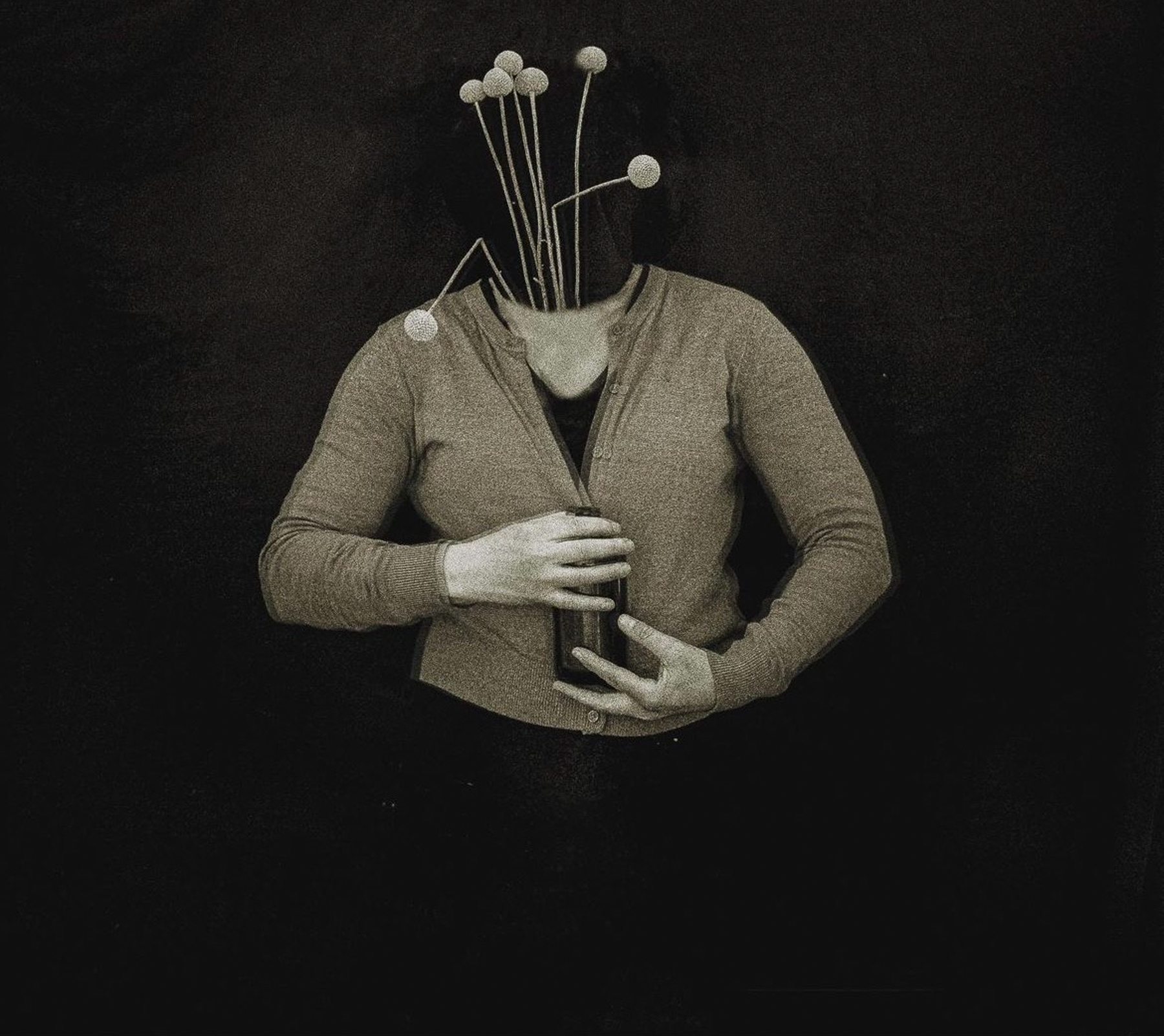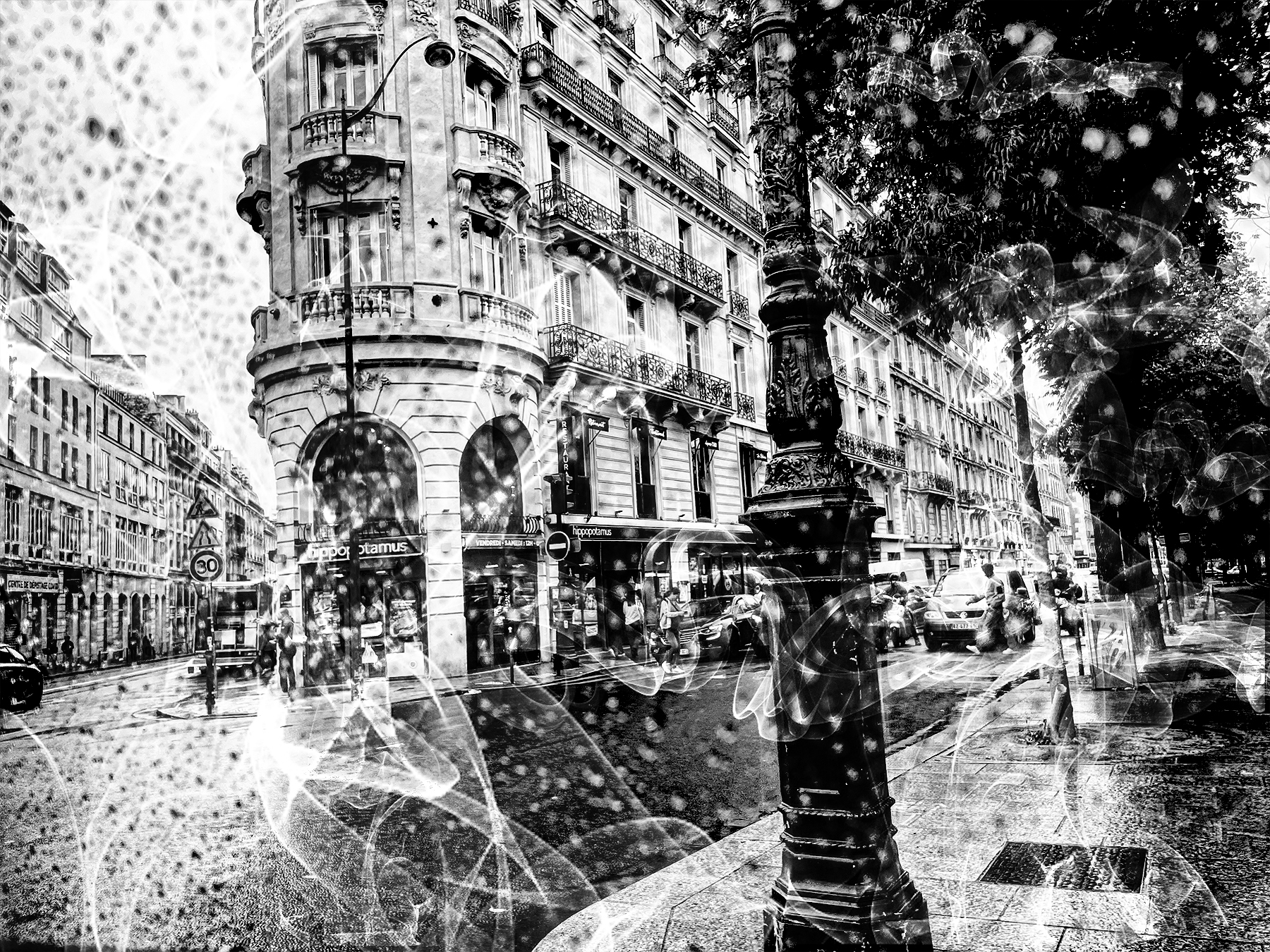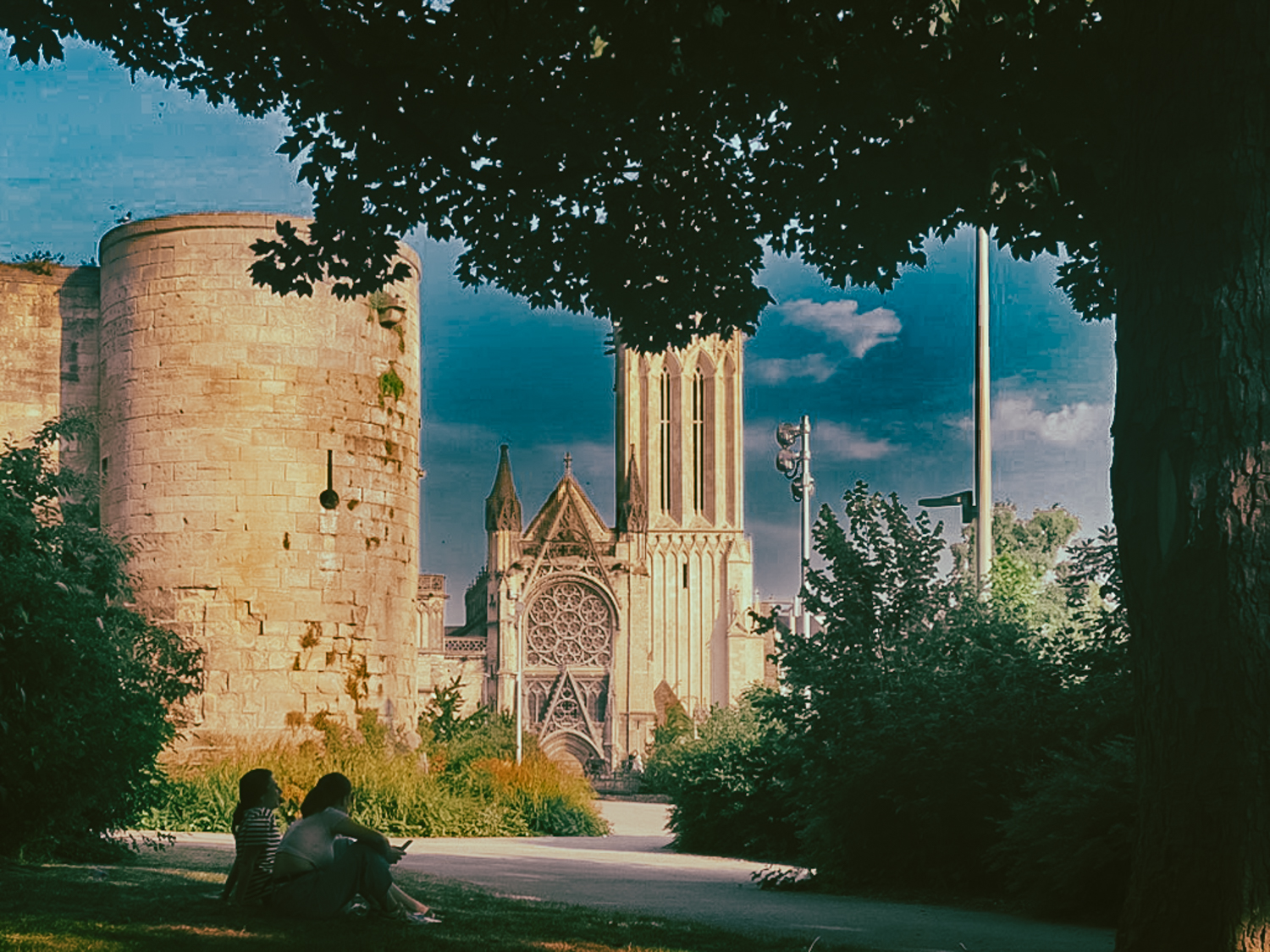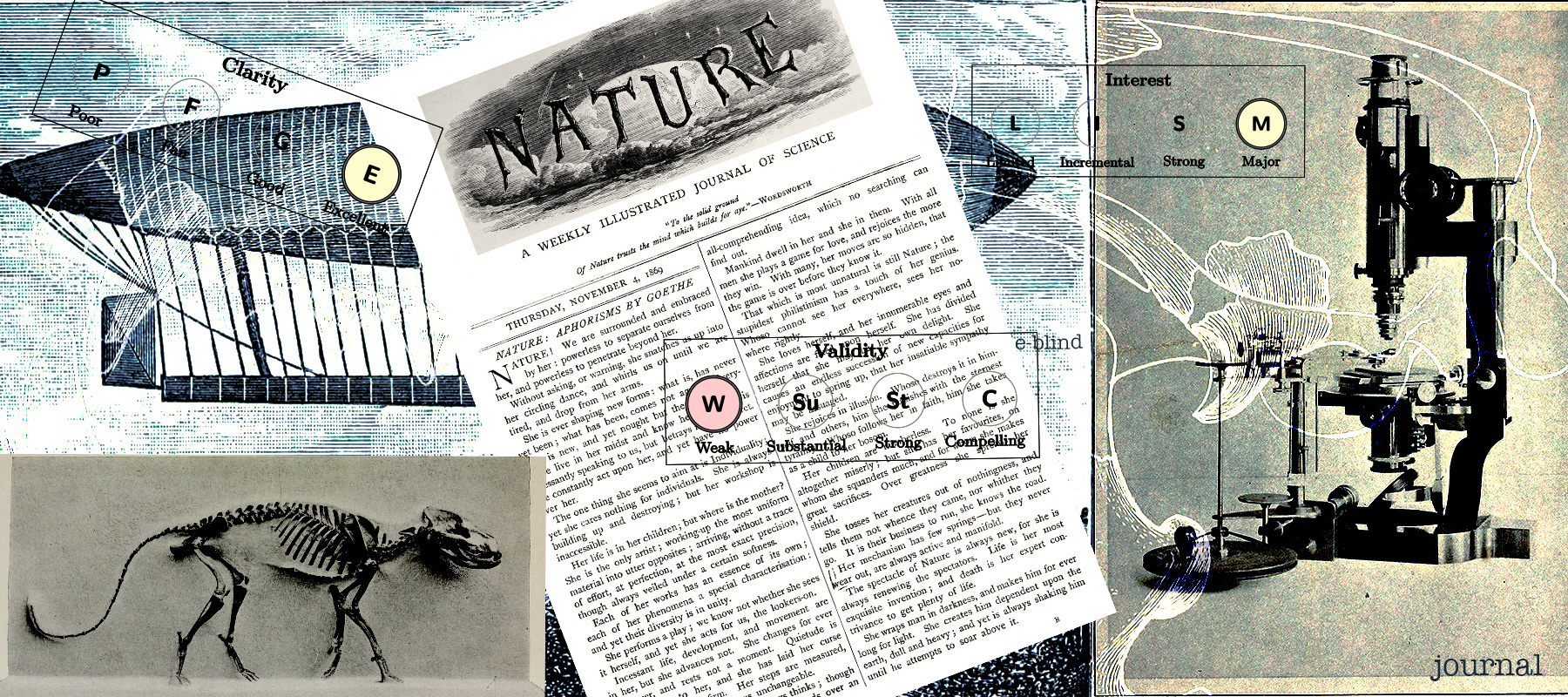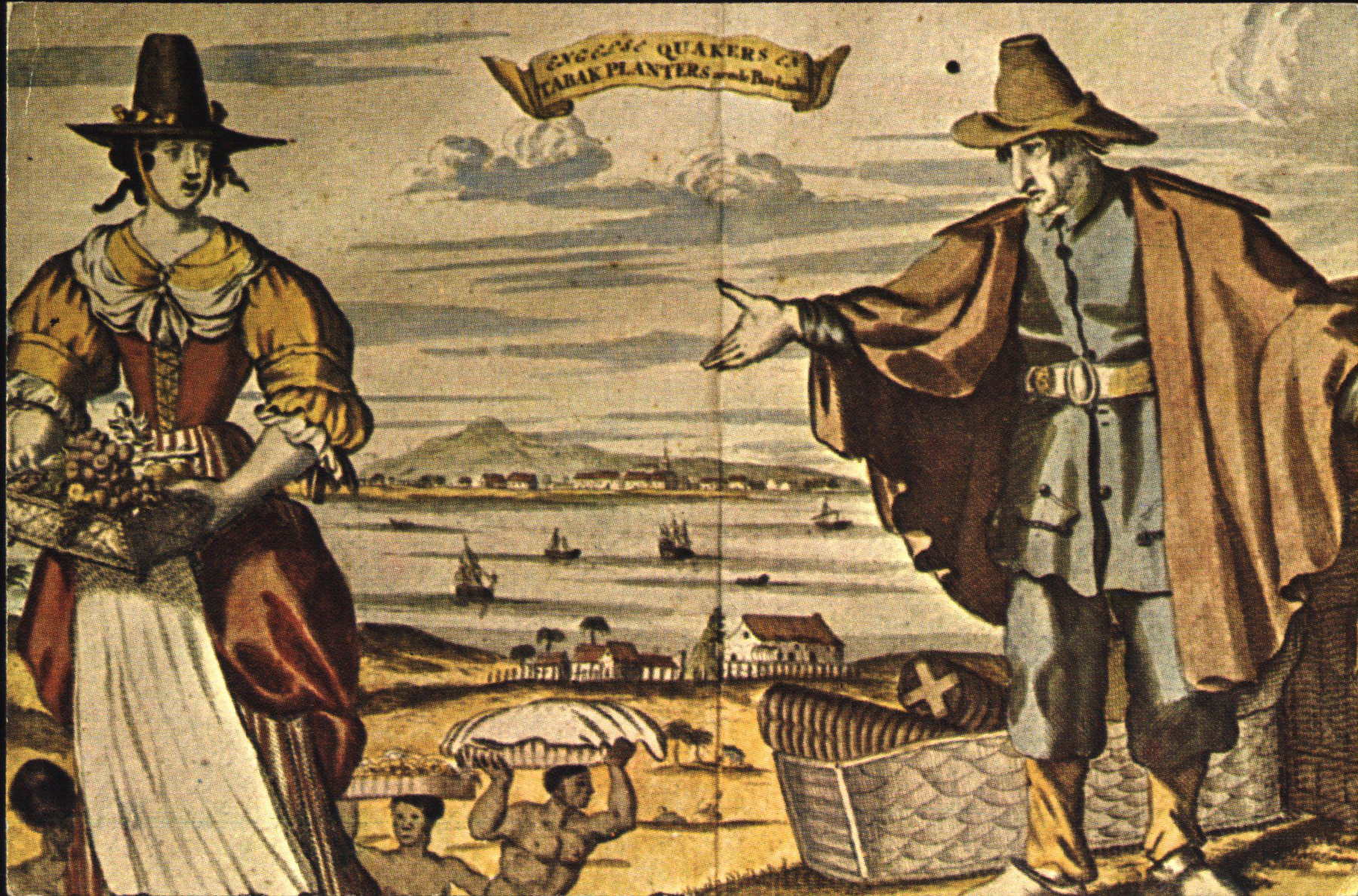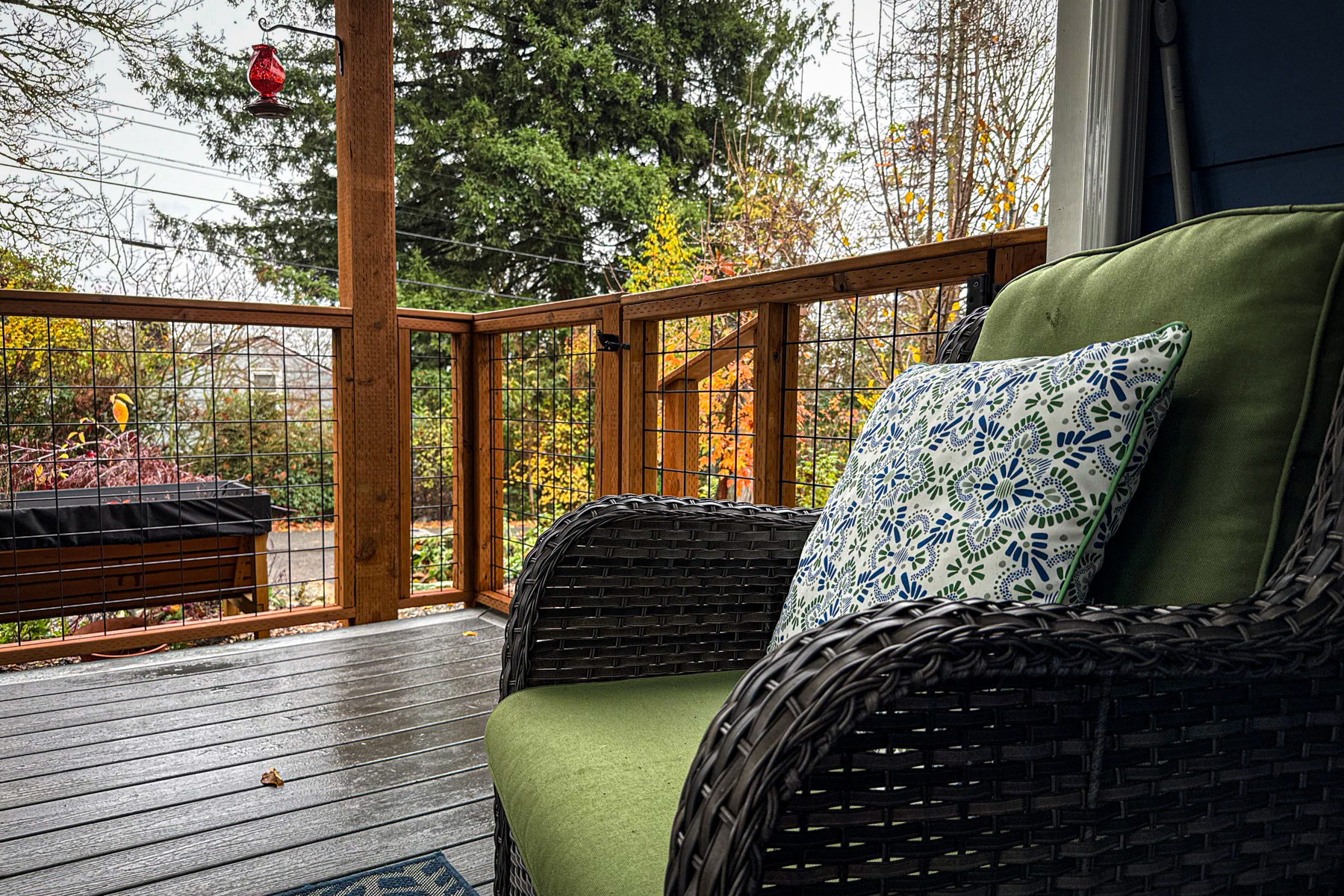
The Salesman
STORY BY ANDREW SHUTES-DAVID
When the salesmen approach, I am laying on the floor of my outdoor office—the deck. My head rests against the wooden deck post, my ankles are crossed in front of me, and my laptop is perched just below my chest, its screen strategically centered in the shade from the post.
Perhaps my supine position makes me an easy mark.p>




